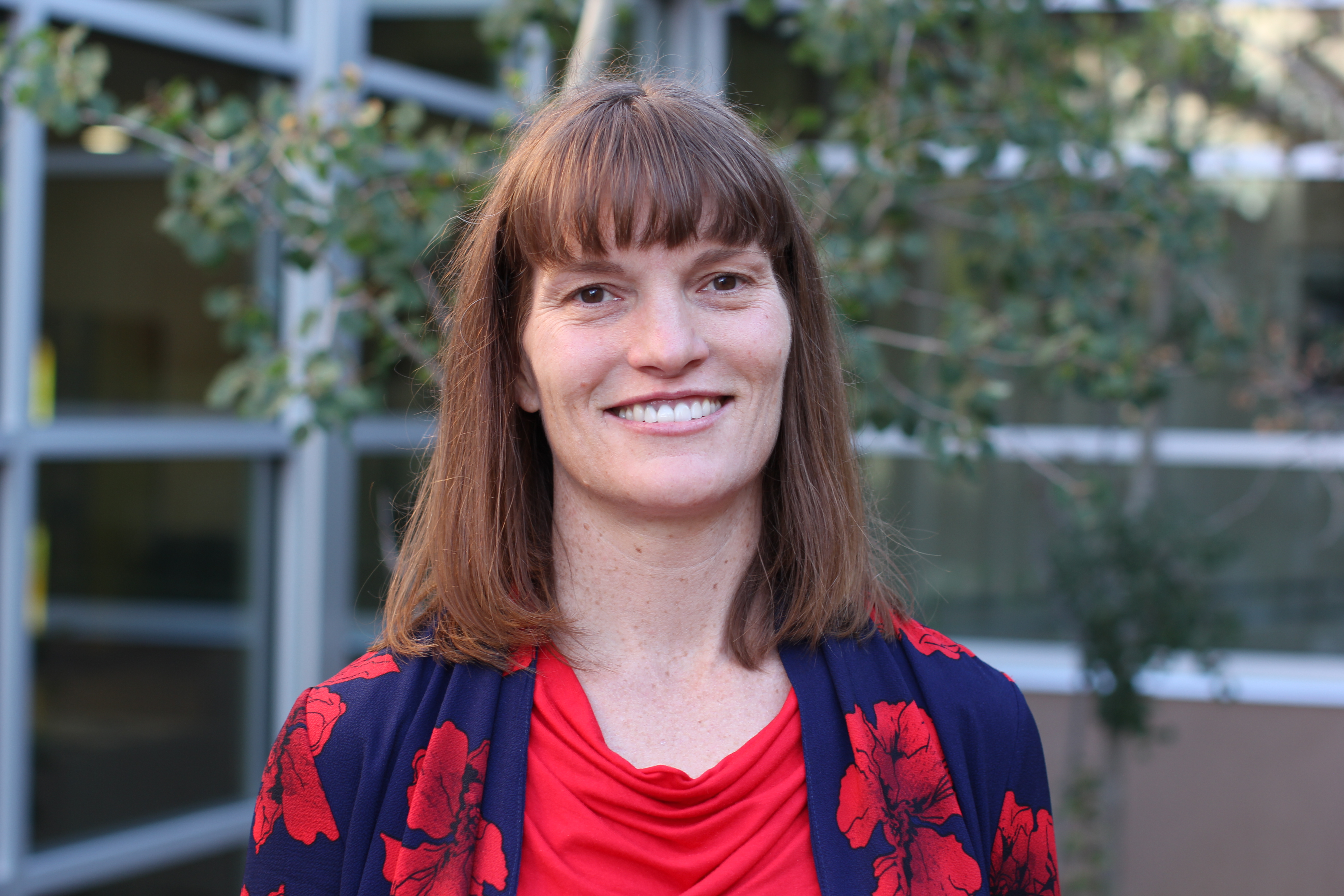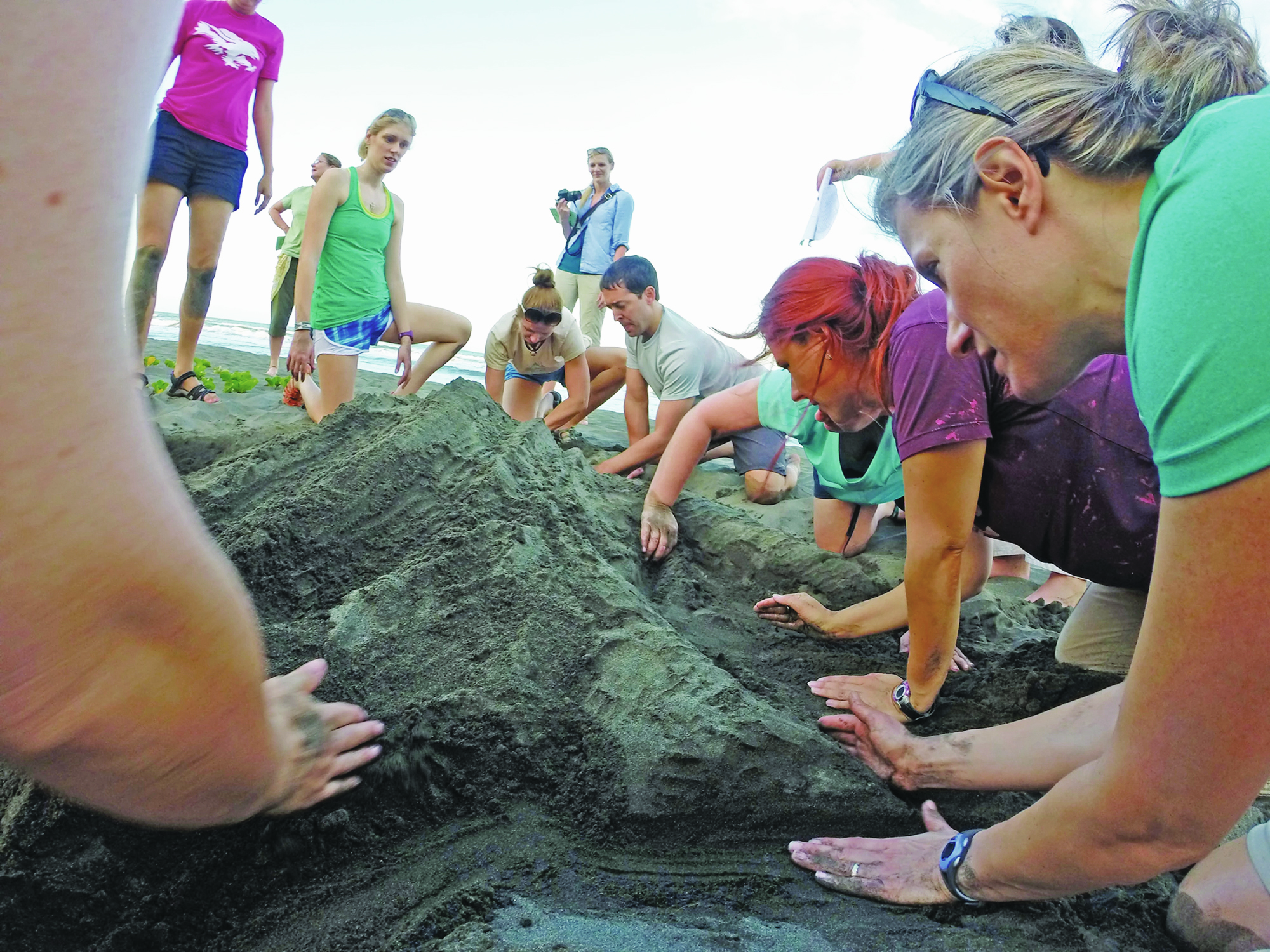Brooke Zanetell selected for field science program in Costa Rica
March 16, 2022

Photo by Enrico Trujillo
UNM-Taos Natural Resources Management Program Director Brooke Zanetell
Courtesy Ecology Project International
Researchers demand quality data, which takes effort and precision. EPI fellows in Costa Rica make life-size leatherbacks in the sand to practice collecting biometric data before working with real turtles.
Out of hundreds of applications from talented educators, Brooke Zanetell, UNM-Taos Natural Resources Management program director, has been selected by the non-profit organization Ecology Project International (EPI) to participate in an 8-day Teacher Fellowship in Costa Rica from April 2-9.
EPI is a field science and conservation organization that partners scientists with local and international students and educators in ecologically hotspots including in Costa Rica, the Galapagos, Belize, Mexico, and the Greater Yellowstone Ecosystem. Since 2000, EPI has reached more than 14,000 students and teachers with its Sea Turtle Ecology and youth leadership programs.
During the upcoming EPI Fellowship, Zanetell and a small group of carefully selected teachers will experience the field course for themselves, gaining skills and resources they can bring back to the classroom.
“This experience pushed me outside of my comfort zone, honed skills I already had, and taught me completely new concepts,” recalls Julia Horton, a 2018 EPI Teacher Fellow. “The entire professional development accomplished more of my bucket list items than any other trip or training.”
On this year’s 10th annual EPI Teacher Fellowship, Zanetell will engage with the rain forests and beaches of Costa Rica’s Caribbean slope. Days will be spent collecting data and planning hands-on lessons near Pacuare Reserve, a field research station managed by EPI.
“I’m super excited to be immersed into Costa Rica’s thriving biome that is jam-packed with life and energy,” Zanetell said.
She’s also looking forward to walking the beaches under the moonlight to survey sea turtles who come ashore to lay eggs. “Being a mom and a wife, I’m excited to have nighttime adventures in nature again,” she said.
The Fellows will work alongside researchers and instructors on a variety of ongoing ecological studies, such as in Zanetell’s case monitoring leatherback sea turtles, or observing the behavior and social structures of primates. All the while, they’ll learn strategies they can bring back to their classrooms to help students observe, question, collect data, and critically analyze the world around them.
EPI makes a point of hiring local instructors, many of whom are often born and raised near the program sites. Along with extensive training and backgrounds in biology, they bring a local’s eye to the ecosystem.
“I know I’ll learn a lot from the other teachers, she said. “And I think this experience will make my teaching and course planning better. Instead of me being outside collecting data and bringing it back to the classroom, my students will be doing more of that and I know they’ll love it.”
For more information on EPI’s programs or how teachers can apply for next year’s fellowships, visit https://ecologyproject.org/teacher-fellowships.

